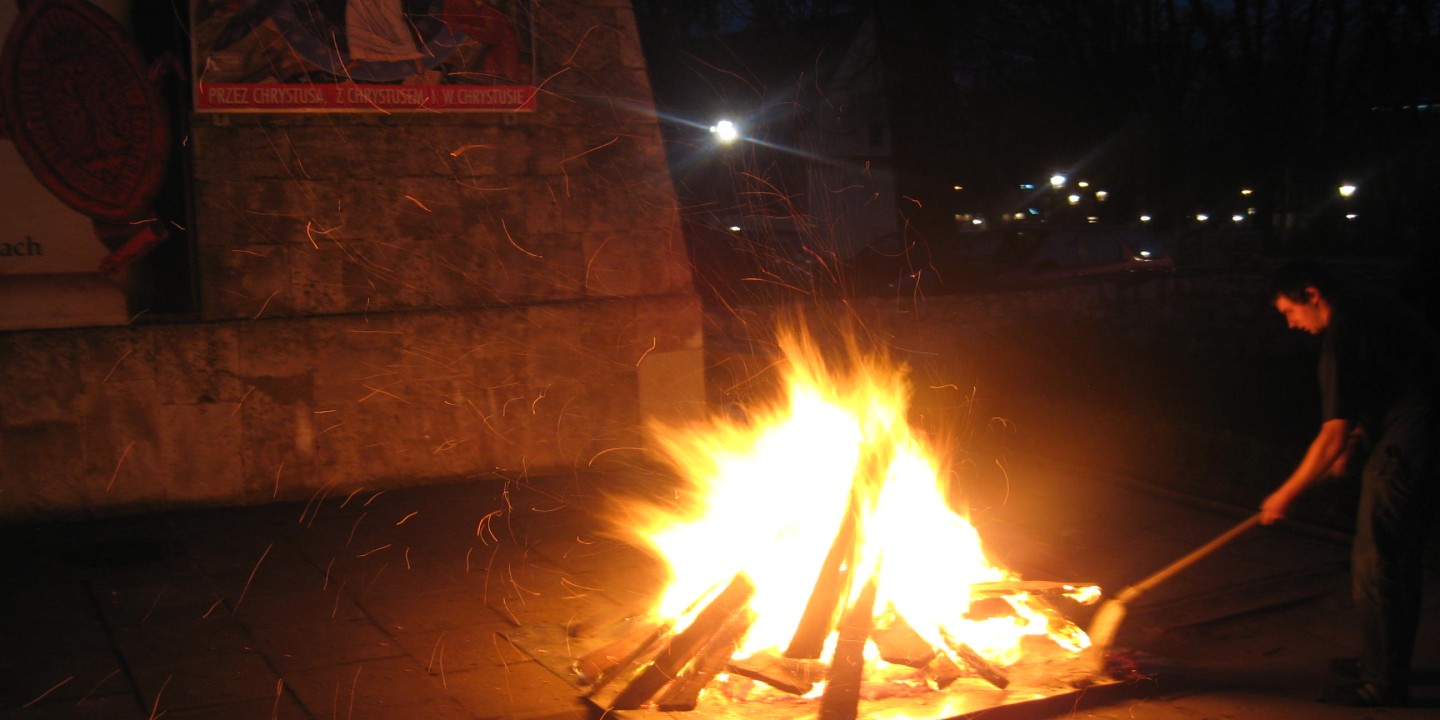Bedrock story

Researchers at universities in Durham and Lisbon recently suggested that the stories of “Beauty and the Beast” and “Rumpelstiltskin” go back 4,000 years, and Dr. Faustus another thousand years before that (although apparently in those days he was a blacksmith). When the brothers Grimm began to compile such fairy tales in the 19th century, their project fostered a sense of German nationalism. The notion that deep in the woods there was a boundless store of common stories affirmed the emerging identity of the German people.
That’s how stories coalesce to form a powerful narrative. When the people of Judah found themselves in exile in Babylon in the sixth century before Christ, they looked deep into their collective soul to discover how they’d come to be there. What they found was a collection of stories about how God created the world, called a people, saved them from famine and slavery, made a covenant with them, and gave them land, king, and a temple before things went astray.
Read our latest issue or browse back issues.
But then, as with the brothers Grimm, came the crucial moment: the exiled people of Judah wove those stories together and discovered their belief that God would save them as before, and that, remarkably, they were as close to God in exile as they had been in the Promised Land. When the early Christians compiled the New Testament seven centuries later, they made the same two moves: they believed God had found a way to save them again, and they saw Christ’s suffering not as abandonment but as the closest that humanity had ever come to God’s heart.
For this reason I regard the exile in Babylon as the fulcrum of the Bible, where the pigeons of the exodus and covenant and wilderness come home to roost and where the transformation in Christ is anticipated and foreshadowed. God restores creation, shapes the kingdom, and renews the church from people who are in an exile of their own or others’ making. This is the moment when the stories converge.
It’s easy to dismiss primal narratives as fairy tales. But these stories are the bedrock of a people’s identity. Without them we don’t know who we are or where we’re going. Take the current soul searching in Britain and Europe. Isn’t it really about what story Britain thinks it’s in, with an empire long gone and a new identity not yet clear? Isn’t the U.S. Republican presidential race about rival stories of what America is for, and when (or if) it lost its way? Great leaders, political, spiritual, and social, identify not only the story we believe we’re a part of, but also where we are in that story and what we must do. Winston Churchill found a way to play upon the sudden wartime smallness of Britain, a country that had long supposed itself to be great, by making its aspirations noble even when it was terrifyingly isolated. He found a way to recalibrate the story.
When I say I’m a Christian, I’m naming the story of which I believe I’m a part, and in which I find meaning, truth, and purpose. Not everyone shares my convictions. But I would challenge them: don’t tell me what you don’t believe, but tell me what you do believe—what story you feel you’re a part of, and how your heritage of stories converges to clarify your identity and purpose in a crisis.
Our culture finds it difficult to handle the language of purpose, of what the Greeks called telos, or ultimate direction: how our lives are part of a greater story. The reason we find New Year’s resolutions hard to keep is that they’re seldom part of a larger narrative. A vision of the good, the true, or the beautiful inspires us to undergo conflict, sacrifice, hardship, and suffering because we realize the path to our goal may go through agonizing territory. But like the wilderness and the exile, those setbacks put us in touch with what we really want.
Yesterday I looked at eight major news stories on the BBC. Half of them were related to terrorism or extremist violence. These movements have a hold on the imagination of the West. The real challenge is whether we have a final goal that’s more profound, more worthy, and more compelling than that of fanatical extremists. A culture that’s lost the ability to articulate a greater vision is bewildered by people who have no second thoughts about sacrificing and suffering to achieve theirs. A people that has no idea of its story has nothing to draw upon when it faces a profound challenge to its identity.
Of course Christians don’t think they have a story; they humbly, quietly, but confidently believe their story is the story. And what they believe makes their story qualitatively different from almost any other story is that God has entered that story—the author has entered the narrative. That journey to faith isn’t complete until it’s matched by vocation and commission, when the disciple, supported by the church, realizes, “There’s a part for me in that story.”






